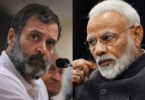WASHINGTON (thehill): Progressive Democrats are wary of an emerging deal on infrastructure being negotiated by five Republican and five Democratic senators, fearing it could make it tougher to get prized priorities to President Biden’s desk.
The progressives are specifically worried that passing a bipartisan infrastructure package consisting of the most popular infrastructure spending priorities — such as funding for roads, bridges, rail, public transport, airports and rural broadband internet — will make it tougher to marshal support for a bigger reconciliation package down the road.
That bigger package could include many progressive prizes, such as climate change legislation, $400 billion for long-term home care, and language to lower the cost of prescription drugs.
Senate Budget Committee Chairman Bernie Sanders (I-Vt.) fired a shot at the emerging deal Thursday afternoon, declaring it falls far short of what the nation needs.
“The problem is this country faces enormous issues that have been ignored and neglected for a very long period of time,” he said. “Even if you look at infrastructure from the narrow perspective of roads and bridges, it’s inadequate. That’s not me talking, that’s the American Society of Civil Engineers.”
Sanders said the climate provisions in the bipartisan deal are “totally inadequate.”
Sen. Sheldon Whitehouse (D-R.I.) also expressed fear that climate change may get left aside if Congress moves a scaled-down infrastructure bill.
“We need a big climate bill — and fast — to stay in nature’s 1.5 degrees C safe zone,” Whitehouse tweeted Thursday.
Moderate Democrats are embracing the scaled-down spending goal as a solid investment in the nation’s infrastructure needs. But progressives are gearing up for battle. They argue the “new funding” over existing programs is “inadequate.”
And they fear that if a bipartisan bill moves through the Senate with support from Republicans and centrists such as Sens. Joe Manchin (D-W.Va.) and Kyrsten Sinema (D-Ariz.), it could sap political support for moving a larger spending package under the budget reconciliation process later this year.
The budget reconciliation package is unlikely to draw GOP support, meaning every Democrat will have to stick together to get 50 votes, with Vice President Harris then positioned to break a Senate tie.
But Manchin and Sinema have both bucked the party on key issues and moving a bipartisan bill might eliminate some of the sweeteners from a reconciliation package that could win their support.
The $1.2 trillion tentative eight-year deal announced by the bipartisan Senate group includes about $579 billion in new spending on infrastructure, say senators familiar with the plan.
And it would be paid for in part by a hike in the gas tax tied to inflation, an idea already dividing the Democratic caucus.
“I think the gas tax is a fairly regressive way of funding transportation. It hurts rural America especially hard,” said Sanders.
There are doubts that the deal being discussed can win support from the White House, which has been cool to a gas tax at a time when it is pushing for tax hikes only on wealthier households. Biden previously told senators in the bipartisan group that he opposed increasing the gas tax, which would hit poor and middle-class families.
One Democratic senator who requested anonymity to comment frankly on his colleagues’ tentative agreement called it a publicity ploy that probably wouldn’t go anywhere. This senator argued the bill is too small to win support from Democrats and Biden, who had pushed for much more in spending.
“We need to be mindful, the American people want something big and bold, that’s how we’ll be judged,” the lawmaker said. “If it fails to meet the moment, it’s too small.
“In this instance, bad policy is bad politics,” the lawmaker who warned that a package that is too small “is bad for all of us in 2022.”
Still, it’s not clear where Biden will ultimately come down. News of the emerging deal popped Thursday while the president was on his first official visit overseas.
Biden has sought to coax GOP senators toward him, and threw his support behind the bipartisan Senate effort this week after ending talks with Sen. Shelley Moore Capito (R-W.Va.). He has talked repeatedly of a desire to move on bipartisan legislation and to break Washington’s gridlock.
Republican senators who negotiated the $1.2 infrastructure framework said they haven’t yet had a chance to present it to Biden or senior White House officials.
Sen. Bill Cassidy (R-La.), one of the GOP negotiators, said in April that raising the gas tax was off the table because of Biden’s opposition.
“The president has said he’s absolutely against it so it’s dead,” Cassidy said at the time. “If he’s against it, it’s not going to happen.”
But some Democrats like the idea, notably Sen. Tom Carper (D-Del.), the chairman of the Environment and Public Works Committee, which has jurisdiction over infrastructure.
“Things worth having are worth paying for. As I’ve said for the last two Congresses, at a minimum we should index the gas tax to inflation to help fund investments in climate-resilient infrastructure,” Carper tweeted Thursday afternoon.
Two Republican senators involved in the talks said that Biden informed Capito last month that a deal must provide at least $600 billion in new spending.
They say their new proposal comes very close to that, with $579 billion in new dollars.
One Republican senator who worked on the deal said a good number of Democrats want to avoid passing all of Biden’s infrastructure agenda with a party-line vote under budget reconciliation, which would allow them to bypass a GOP filibuster.
“The Democrats, a lot of them, are not really keen on this big, broad approach to reconciliation,” the lawmaker said.
Senate Majority Leader Charles Schumer (D-N.Y.) said he wanted to review the details of the deal before passing judgment.
“I was told verbally the stuff, I’ve asked for paper. I’ll go look at it,” he said. “But we continue to proceed on two tracks, a bipartisan track and a reconciliation track and both are moving forward.
“That’s all I’m saying. Stay tuned,” he added.






